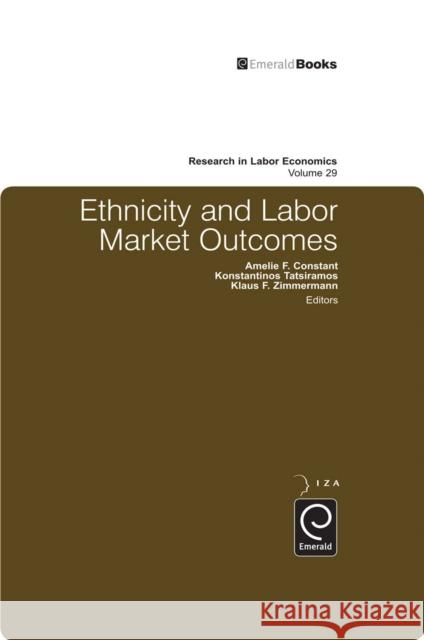Ethnicity and Labor Market Outcomes » książka
Ethnicity and Labor Market Outcomes
ISBN-13: 9781849506335 / Angielski / Twarda / 2009 / 412 str.
How immigrants and their descendants fare in the host society and in particular in the labor market is a very important question. While differences among ethnicities have been found to be marked and persistent within many host countries, and while the labor market consequences of diversity have been recognized, they have not been sufficiently examined. This volume contains fresh knowledge to help better understand the complex relationship between ethnic or minority groups, the role of ethnic identity and their disparate economic performance; 12 papers that individually and collectively go to the heart of this question. Offering a new paradigm, they tackle and interlink four important themes of immigrants' integration: ethnic identity, citizenship, interethnic marriages, and immigrant entrepreneurship. These papers offer insights and answers to challenging questions for six different immigration countries while they study countless different ethnic and immigrant groups. It is the aim of this volume to bring the role of ethnic identity in the forefront of scientific and political discussion and provide a link among these themes, anticipating new trends and directions in this area. An anthology of these questions is: Does ethnic identity affect the employment and earnings of immigrant groups and in what way? Does dual nationality affect assimilation? To what extent do social interactions determine the employment outcomes of ethnic minorities? Why do Mexican-Americans exhibit low self-employment rates? Which are the factors that influence the composition of the workforce in terms of ethnic-background? Do interethnic marriages influence transitions into and out of ethnic self-employment? And, are interethnic marriages a guarantee to high human capital achievement of their offsprings?











